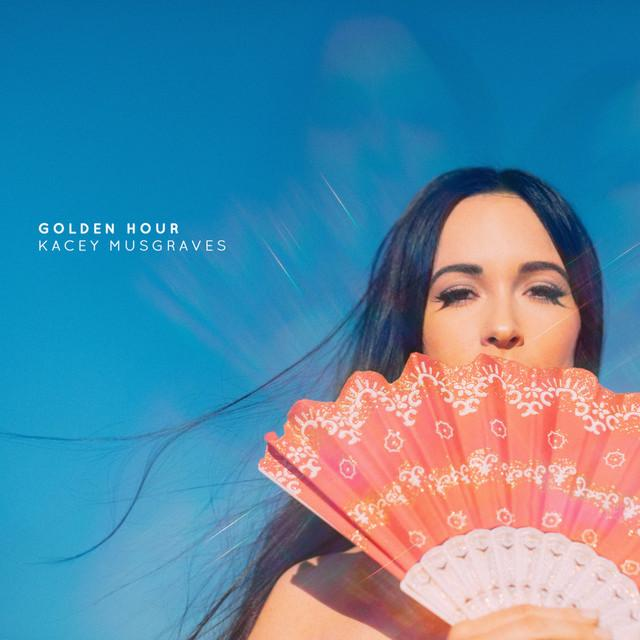Well, Kacey Musgrave’s new album has certainly caused a stir.
At this point, I’m sure many of you are tired of the rash of strong, divisive opinions surrounding this project. Was she uniting fans through genre-defying music, or selling out and forsaking sound and substance? Is the album even country, and what is “real country” these days anyway? I’ve already given my thoughts on her album, as well as discussed the entire genre debate in detail with Zack of The Musical divide, and after this, I promise I’ll just shut up and let you all come to your own conclusions about it all. But this portrayal of Golden Hour by mainstream media who are largely ignorant of the country genre as the album of the year, or some forward-thinking opus that’s “so gutsy it’s not even country” has got to be addressed.
It’s not that these non-country writers shouldn’t cover country music; in fact, the country genre gets ignored too much by the mainstream media and is often given only a cursory glance. And it’s not even that media members who are crowning Kacey Musgraves as some sort of queen of country are necessarily writing a false narrative; maybe they believe the things they write, and probably they do, given the lack of knowledge of other artists who are pushing the genre forward right along with Musgraves. And notice I said “right along with,” as opposed to “better than,” because Courtney Marie Andrews and Lindi Ortega and others aren’t doing more for the genre than Kacey Musgraves; rather, they’re all doing it in different ways, and all of it’s working very well. So even though I have a serious problem with the way the mainstream media is praising this album, I don’t think the answer is to pit other artists against each other.
The problem, though, is the underlying message conveyed by these headlines and by these narratives. Kacey’s country album is “so gutsy it’s not even country,” held up as a record that’s so forward-thinking that it’s left the restrictive, claustrophobic nature of country music behind. Musgraves meant to unite with this album and not to divide; she meant to expand her sound and bring country music to listeners who might not otherwise know the genre. She didn’t make this album to cast the bonds of country away, and that’s how it’s being portrayed by some of the media.
This is disrespectful to country as a genre, and this isn’t about traditional versus contemporary, it’s about the fact that it’s considered brave and risk-taking to abandon country altogether. It’s viewed as an inferior art form sonically, and more than that, it’s held up by many as the sound track to backward rural American life. It’s looked down on as the music of rednecks, of racists, of a backward and simple people who need to be brought into the modern world. Obviously, politics drive some of that narrative, and country purists sometimes don’t help the perceptions by putting their own restrictive limits on things, as we discussed in the collaboration, but these are both topics that can wait for another day. The point is, that putting words like “gutsy” and “country” in opposition to one another, as if country can’t earn this distinction on its own merit, is dangerous and derisive to the music we all love.
Does that mean these writers should stop covering country music? absolutely not; rather, it means they should broaden their perspectives and consider other artists. It’s fine to start with big names like Musgraves, and it’s fine if you don’t care for Lindi Ortega’s or Courtney Marie Andrews’ albums as much, but covering them only adds more context and knowledge of the genre. I can write a piece about a pop album; I can even recommend it and say I enjoyed it. But I can’t write with the same expertise and authority of a pop critic, and it’s disrespectful to the art to pretend that I know what I’m talking about if I’ve only listened to three pop records that year. This is the problem with mainstream critics, not that they shouldn’t write about or cover country, but that it should be considered an equal with the other genres of music, an art form to be explored and loved right beside pop or rock or rap. And yet it gets overlooked, except when projects like this come out. And then, instead of letting it be a window to the sounds and stories of country music, they craft narratives around it framing it a some sort of chain-breaking moment for Kacey Musgraves. Let them embrace country music right along with the rest of us, and then if they want to assign all these achievements to Kacey, I will respect their opinions and understand that their views come from a knowledge of the genre and a passion for the music.
That said, it’s not the ignorance of country music which ultimately makes their narrative a problem, it’s that their narrative comes from a place of condescension, a place where the music we love is meant to be cast aside in favor of progressive ideals and sounds. And in framing their opinions this way, they’ve only done a disservice to Kacey Musgraves and Golden Hour, because this is a personal album, meant to bridge gaps, to unite rather than divide, and to open herself up to the world rather than point fingers at judgmental people. Regardless of how you feel about it, it’s meant to bring more people to country music, not to turn them away, and it’s a shame that the media circus surrounding this may ultimately have that effect.
